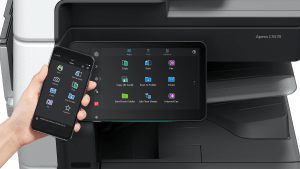Accounts payable (AP) is a critical part of your business. It manages all your bills, supplier invoices, loans, and other payables, except payroll. Mismanagement of your accounts payable function can have serious consequences including missed payments, late charges, interest fees, bad credit ratings, and lost suppliers.
So, how efficient is your accounts payable process?
In this post, we will look at the main challenges in properly managing the accounts payable department, especially if you are using a manual system. We will also explore how automation can address these challenges, and enhance the efficiency and productivity of your AP process. So, let’s get started.
Challenges with manual accounts payable
Is the AP team always busy and overworked? Are you missing payment deadlines? Do you have a hard time tracking your bills and invoices? Are your suppliers complaining about late payments?
These are some of the questions your need to consider when reviewing your accounts payable function. And if you have a manual system, the AP task can become overwhelming and can get out of hand.
Here are 5 main challenges with manual accounts payable management:
1. Manual data entry
Are you manually entering invoice data into a finance or ERP system? This process can be inefficient, time-consuming and prone to errors. Manual data entry not only consumes a lot of valuable resources, it can also open the doors to mistakes and mix-ups. Even just one wrong entry on the invoice amount or date can have serious financial consequences to your business.
Also, if you are still using paper documents or printed out invoices, it is important to know how these documents are being handled and stored. Any mismanagement of physical AP papers can lead to damage and loss. It can even result in a serious security issue if the documents contain some sensitive data.
2. Inefficient process
Since your AP team is still managing invoices manually, you probably have a long and complicated system of processing payments. This can result in late payments and unhappy suppliers. Your account can be suspended or charged a significant interest fee. It can also negatively impact your credit rating and reputation in the industry.
Additionally, an inefficient manual process can put a lot of stress on the members of the accounts payable team – leading to unhappy employees and substandard results. It takes longer to process each invoice, plus they have to be extra careful when manually entering data into the system. They would probably rather be working on more strategic tasks.
Have you ever calculated just how much it costs you when invoices are processed manually? When you think of how much time is wasted by each staff member and take their salaries into account, you may be surprised by how easily it can add up.
3. Inability to manage information
The AP team goes through a lot of bills, invoices, documents and other information. Managing and tracking it all can be quite challenging and overwhelming, especially if you have a manual system. Where would you store all the information? How can you quickly access a specific document?
Manually filing and storing papers and other physical documents can take up a lot of space and add ongoing storage costs. Plus, you have to think about how everything would be organised for easy access and tracking. Imagine how painful an audit is when you can’t find anything!
4. No overall visibility and control
Another major challenge – and perhaps, the most painful – is the lack of visibility and control. When you have paper invoices and physical AP documents, it can be very difficult to track the progress of any payments.
This would require constant manual monitoring and checking at every stage of the process, from data entry and logging to scheduling and actual payment. Depending on the number of bills and invoices you have each month, things can easily get out of hand.
5. Vulnerability to fraud
There is a knock-on effect from the lack of visibility and control created by using a manual accounts payable system; that is, it can expose your company to security vulnerabilities and fraud.
The accounts payable department deals with very sensitive information – and without the necessary controls and fraud protection (which is mostly available in automated systems) it would be very difficult to track any suspicious activity.
Benefits of accounts payable automation
As we have so far shown, a manual accounts payable system can have many challenges that negatively impact the business. Your AP function needs to be efficient, easy to manage, and can provide overall visibility and control.
By automating accounts payable, you can gain significant benefits for the business, including:
- Increased accuracy of data from invoices
- Quicker and more efficient payment processing
- Easy management of information through digital filing and storage
- Total visibility and control across the whole AP process
- Enhanced security and fraud protection
With an automated system, the accounts payable function becomes simpler and more manageable. With accurate data, you can easily track the progress of invoices in the system, and be confident that you have complete visibility and control. Painful audits and missed, late or inaccurate payments would therefore be the thing of the past!
Looking to automate? Why not consider KYOCERA accounts payable solutions?
KYOCERA accounts payable solutions decrease the margin of error by automating how invoices are received, managed and processed. We save you time through efficiency and by reducing repetitive manual tasks.
- Automatically capturing invoice data, highlighting errors and allowing easy amendments
- Integrates with any financial or any other system
- Invoices are captured regardless of source (email, fax, scanner mobile, web, etc.)
- Provides advanced workflows, easy document retrieval and records management capability as a part of DMS/ECM systems or solutions


